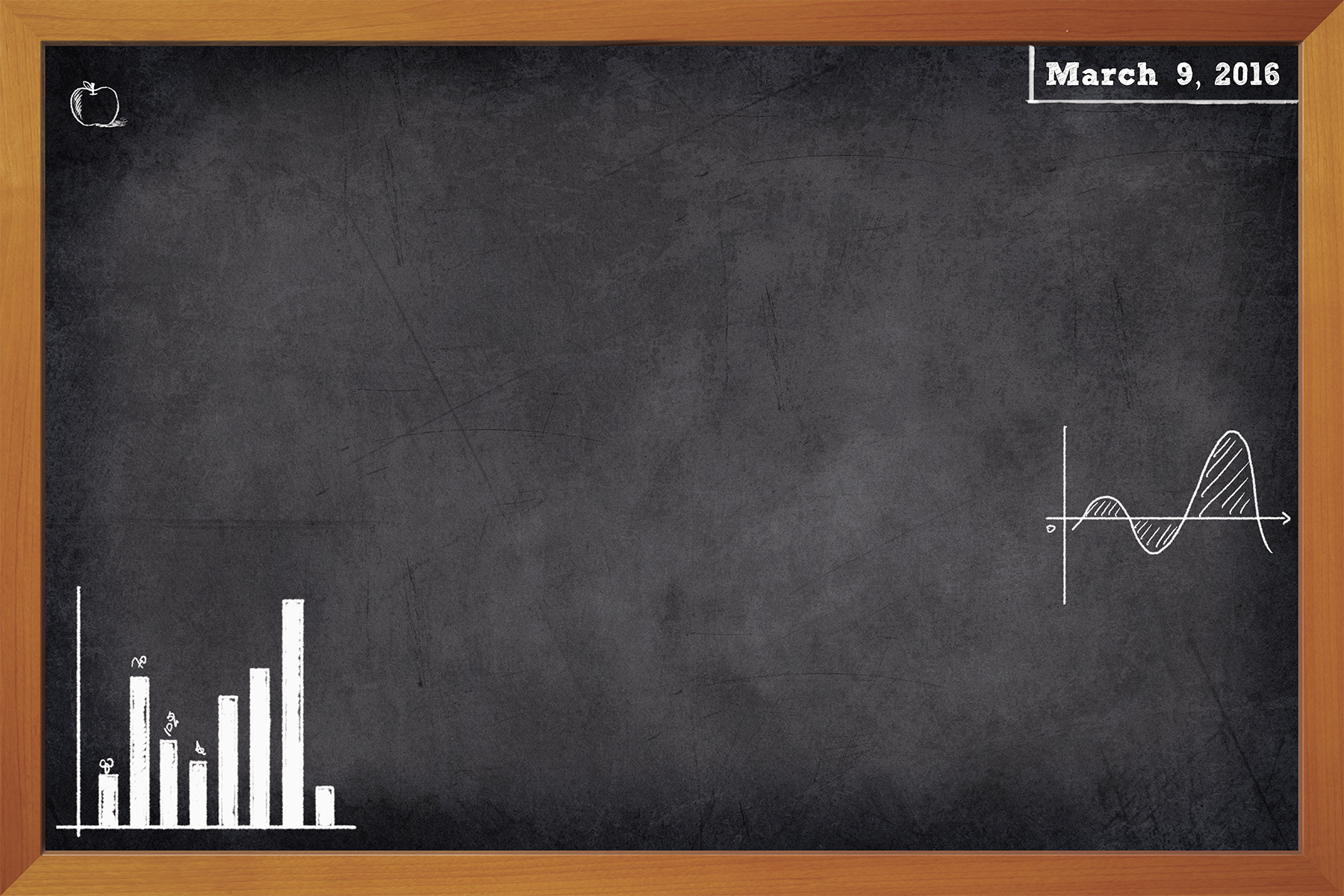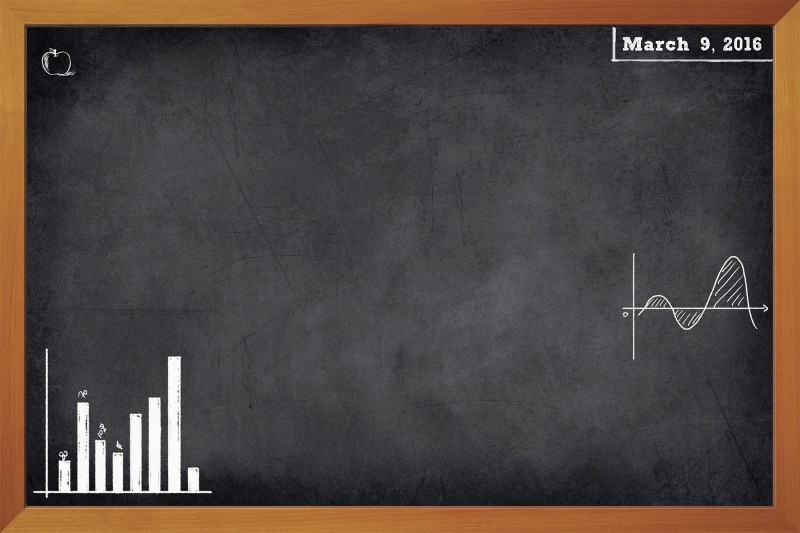The psychology of being graded

Features Editor Bethany Bowles explores the reasons students put such emphasis on their academic performance

Setting personal goals is and always will be a major part of being a university student. But not meeting your personal goals is something students face at some time or another.
As an English student, I pride myself in my ability to write well. However, last year, I received my lowest grade ever, a C- on an essay I had put a lot of work into.
I demanded an explanation from my professor and when I received that feedback, I understood why I was given such a low grade and moved on with hopes to do better in the future.
In four years at Wilfrid Laurier University, I have seen several peers having different reactions to receiving poor grades on assignments. Some people laugh it off, some people use it as motivation to work harder on their next assignment and some people let a poor grade alter their outlook entirely.
For some students, a poor grade can alter their mood for days; they can be so hard on themselves, causing them to disengage. Stress takes over and they find themselves measuring their self-worth based on a letter grade written in red pen on the top of a test, essay, lab assignment, midterm or exam.
Getting good grades is constantly on students’ minds. They set certain goals for themselves and when these goals are not achieved, their world is seemingly over.
“There is research that looks at the extent of which people base their self esteem on different things, one of them being academic performance,” said Christian Jordan, an associate professor in psychology at Laurier who studies self-esteem, specifically the distinction between fragile and stable self-esteem. He has also done research in narcissism.
“There are individual differences in that, some people are more likely to base their self-esteem on academic performance than others. The evidence indicates that it’s actually detrimental overall for psychological well-being to base your self-esteem through academic performance.”
Jordan explained some people’s self-esteem can rise and fall with how well they’re doing academically. If they’re doing well consistently, their self-esteem isn’t effected. It’s when students don’t do as well that their self-esteem can suffer detrimental consequences.
This is referred to as “contingent self-esteem,” according to Jordan. It’s seen as less stable and more fragile, therefore more susceptible to being affected by a poor grade.
According to Jordan, some people base their self-esteem on more stable facets of their lives like family support or their own personal morality. Others base their self-esteem on more unstable aspects of their lives, like academic performance.
“Saying that somebody’s self-esteem isn’t contingent on academic performance isn’t to say they don’t care about academic performance,” Jordan explained. “They might be really disappointed if they get a bad grade, but it’s not going to have the same impact on how they feel about themselves as a person.”
Shaan Brach, first-year business and communications student explained that he goes into each assignment or exam with a goal he has set for himself.
“I usually compare myself to what I think the average is going to be and try to get above that.”
Recently Brach received a mark he wasn’t too proud of, but his reaction seemed fairly normal and moderate. It was a bonus case for BU121 where he received a one out of 12. It boosted his mark .25 per cent instead of a possible three per cent.
“I was pretty upset when I first got the grade, like how is it possible to get that low of a mark, but then I looked at the rubric and I guess I’m more understanding of where that mark came from.”
Brach explained upon receiving a low grade, he usually responds by partying with friends to get his mind off of it. When the next assignment comes up, he tries to remember how he did poorly in the past and that he cannot afford another low mark.
“The amount of time I’m upset is directly determined by how much time I spent on the [assignment] itself,” he said.
Some people, however, have a harder time disengaging from negative feedback or constructive criticism. This can actually be related to neuroticism, depression, anxiety and introversion, Jordan explained.
“I think you can distinguish between that drive [to succeed] and neuroticism … If it’s your goal and you’re doing well, you’ll feel satisfied or happy that you’re meeting your goal and when you’re not, you’ll be discouraged, but you’ll probably work to do better,” he continued.
“Whereas if you’re staking your self-esteem in that performance and you don’t do well, then often what you’re seeing is there’s a more pronounced reaction to it, but also defensiveness.”
The result of this reaction can be when students lash out against the professor or when they believe a test or assignment was “unfair.” In the end, this behaviour actually prevents learning.
Also, this negative behaviour will most likely follow the student into further aspects of their life, like their career after university.
Language can also have a major impact. An “A plus” carries a more positive connotation than an “A minus,” something Jordan also found interesting.
“Subtle aspects of the environment can prime or cue people to have reactions that they’re not necessarily conscious of. It could be that those kinds of associations with positive means good, negative means bad could make the impact of grades even more pronounced,” he said.
A lot of this can come from the educational system as a whole. Students are constantly affected by the grading system and can often take away from the love of education — our self-worth is being proven by a letter written by a professor on a piece of paper.
“I think it’s a necessary evil in the system that we have. The ideal would be learning for the sake of learning and not having to be evaluated,” Jordan said. “We’re living in a society where we need to figure out who’s going to be best suited for grad school, careers … Some amount of evaluation and competition is kind of inherent.”
This evaluation Jordan spoke of is what many students focus on when it comes to graduating with honours and succeeding in order to differentiate themselves heading into the workplace or grad school.
But if we all get a diploma after graduation, why does it matter if one person graduates with an 8.0 GPA and someone else graduates with an 11.0?
Mickey Conde, third-year global studies student, pointed out the flaws in Laurier’s grading system and how this can potentially add stress to students.
“I don’t really like the grading system, especially at this university an A+ is like a 92 and up,” Conde said.
Conde also said since he does not have any plans to get a higher education after his degree, he isn’t overly hard on himself to get high marks.
“I know I’m not going to get a masters. I don’t have the money for it,” he said.
“I’m getting this degree not for a job, I’m getting it more to expand my horizons … I really don’t know what I want to do [after university]; I’ll most likely have to go to college … In the sense of getting into college, any university degree is wicked awesome.”
Lisa Favero, manager of employer relations and recruitment at the Career Centre, explained some employers actually do look at students’ transcripts before hiring them.
Graduating Student Employment Services jobs that are posted on Navigator, the Career Centre’s job board, are for final year students seeking full-time employment after graduation. Favero said from August 2015 to February 2016, 40 per cent of the roles posted required transcripts with applications. These jobs, mainly in the business financial industries, were looking for students with average or impressive grades.
Sixty per cent of those jobs posted, however, did not ask for transcripts upon applying. Those employers were looking for well-rounded students who also had soft skills, hands on experience, excelled in extracurricular activities as well as maintaining good grades.
“To give you an example, we know for sure that in roles like accounting, finance, some [information technology], business analysis type roles, consulting, some sales and marketing, employers definitely want to see the marks,” Favero explained. “It may be just to make sure that they’re looking at people who have at least a minimum GPA of something. Or it may be that they’re looking for the cream of the crop or very, very bright people. Those roles may be behind closed doors, very analytical; they need exceptional hard skills to do those roles. Those employers aren’t really looking for that people person … they’re the people behind the scenes.”
Favero stressed how important it is to know what kind of jobs you’re looking for. For people who are looking for those “behind the scenes, analytical jobs” maybe it is in their best interest to aim for high marks.
She also suggested if you get a low mark in an elective, stress how well you did in your core or mandatory courses. One bad mark won’t affect the entirety of your success after graduation. It’s also important to pitch what you have — articulate your academic background in a way that enhances your experience beyond grades.
That’s why being able to promote yourself effectively is so important.
“Sometimes our biggest challenges are our biggest learning opportunities. Maybe this course was particularly challenging and you didn’t do well, but you overcame so many huge obstacles and where you were at the beginning of the course and where you ended up was a huge progression for you in terms of personal and intellectual growth,” Favero explained.
If you find yourself stressing over your grades, ask yourself: what’s motivating you to do well. Is it a personal goal or an effort to protect your self-esteem?
“Sometimes our biggest challenges are not necessarily the worst thing that can happen to us, but it’s the way you articulate it.”


